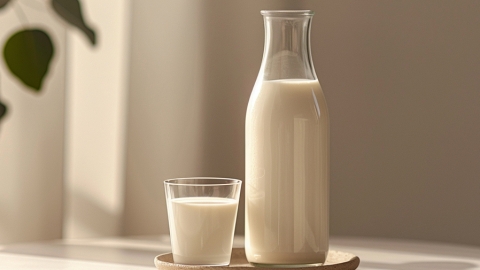Can I drink milk after hemorrhoid surgery?
Generally speaking, patients can consume moderate amounts of milk to supplement nutrition after hemorrhoid surgery if their gastrointestinal function is normal and they do not have lactose intolerance. However, if gastrointestinal discomfort occurs after consumption, milk should be avoided. Detailed analysis is as follows:

Milk contains high-quality protein and calcium, which can provide nutritional support to the body after surgery and aid in recovery. Once the intestinal function gradually recovers after surgery, drinking a small amount of warm milk can supply energy without directly irritating the wound, making it a suitable choice for nutritional supplementation.
However, some individuals may have weakened gastrointestinal function after surgery or suffer from lactose intolerance, which may lead to bloating and diarrhea after consuming milk. Frequent bowel movements may irritate the surgical wound, cause pain, or affect the healing process. In such cases, milk consumption is not advisable to avoid increasing the body's burden.
Patients recovering from hemorrhoid surgery should adjust milk consumption according to their own gastrointestinal reactions. The initial intake should not be excessive, and warm milk is preferable for easier absorption. If gastrointestinal discomfort occurs after drinking milk, consumption should be stopped immediately, and the doctor should be informed to adjust the dietary plan accordingly.










